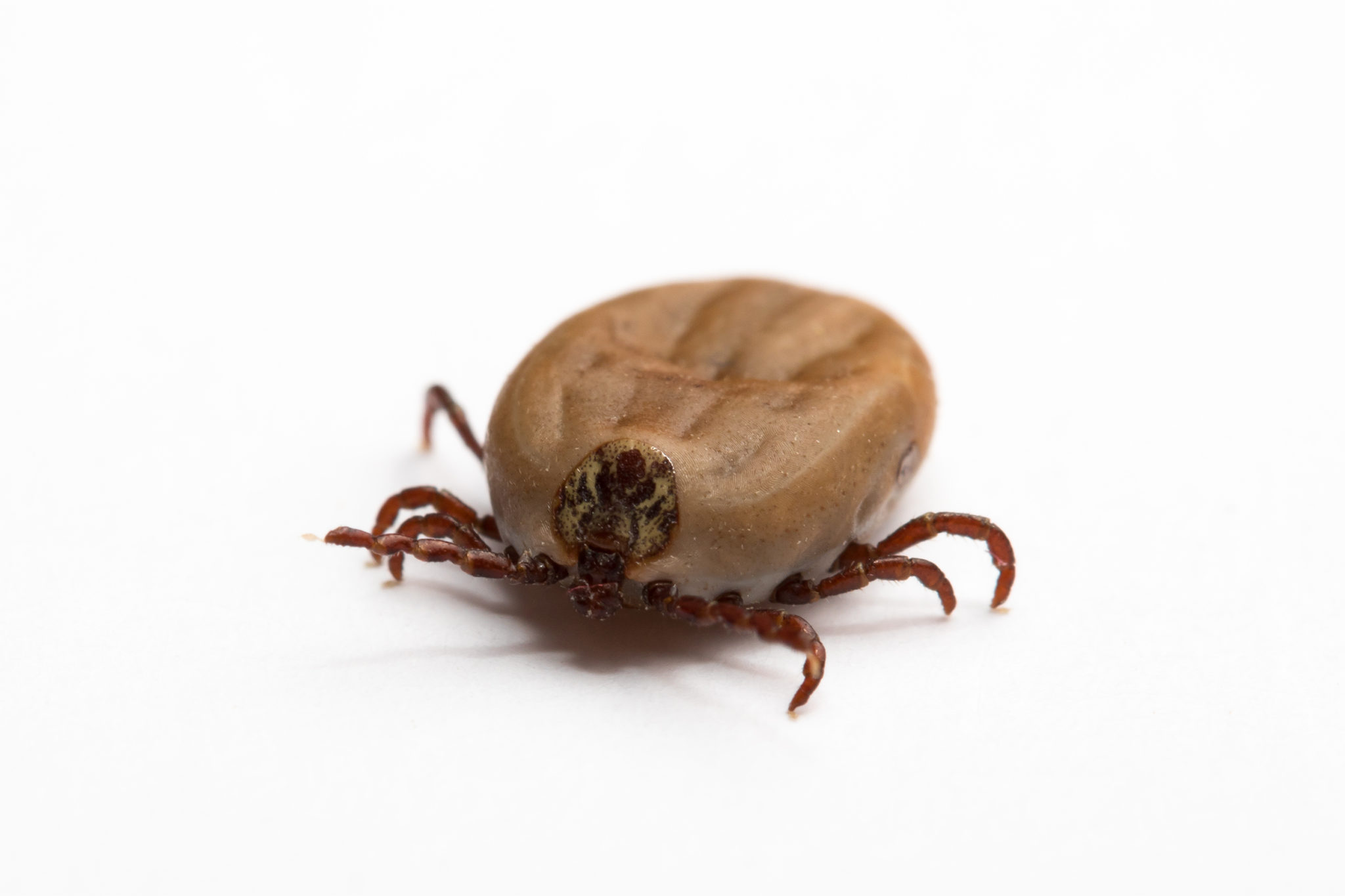Ticks Transmit Harmful Diseases

When ticks feed, they take up whole blood, extract the water (about 70–75% volume) and inject the water back into the host. For this reason, they are efficient vectors of a variety of disease-causing organisms such as bacteria, spirochetes, rickettsia, protozoa, viruses, nematodes, and toxins. A single tick bite can transmit multiple pathogens as well as creating secondary infections and allergic reactions. They are the most common transmitters of vector-borne disease in the U.S.
LIFECYCLE
During their lifecycle, ticks frequently drop off the host then climb up walls and vegetation and reattach themselves to a passing host. Larvae can survive as long as eight months and adults as long as 18 months without feeding.
A habitat preferred by ticks is the interface where a lawn meets the woods, or more generally, the ecotone, which is unmaintained transitional edge habitat between woodlands and open areas. Therefore, one tick-management strategy is to remove leaf litter, brush, and weeds at the edge of the woods. Ticks like shady, moist leaf litter with an overstory of trees or at least shrubs, and they deposit their eggs into such places in the spring, so that the larvae can emerge in the fall and crawl into low-lying vegetation. The 3-yards of boundary closest to the lawn’s edge are a tick-migration zone, where 82% of tick nymphs in lawns are found.
PREVENTION
- Regularly inspect pets for ticks. Remove any ticks from your pet with forceps or eyebrow tweezers. Apply gentle pressure slowly to allow the tick to loosen its mouthparts. Do not use an irritant such as alcohol or nail varnish. Afterwards wash with soap and water and apply a dry dressing over the wound.
- Frequently mow your grass short.
- Remove leaf litter, brush and woodpiles around houses and at the edges of yards.
- Clearing trees and brush to admit more sunlight into the yard reduces the amount of suitable habitat for deer, rodents, and ticks.
- Clearing trees and brush to admit more sunlight into the yard reduces the amount of suitable habitat for deer, rodents, and ticks.
- When hiking, avoid tall grass and shrubs, wear white or light-colored clothing (makes hitchhiking ticks are more visible) and tuck pant legs into socks.
- Occasionally some repellent lotions can also be used.
If you are concerned about ticks on your property, please contact us HERE.
For more tick facts and prevention tips, please click HERE.
Tags: bugs, Charlotte, Chattanooga, Cincinnati, clear defense, cleardefense, Columbia, Durham, exterminate, exterminator, Greensboro, Greer, infestation, insects, Kansas City, Knoxville, Nashville, pest control, pests, Raleigh, Richmond, termites, ticks, Winston Salem